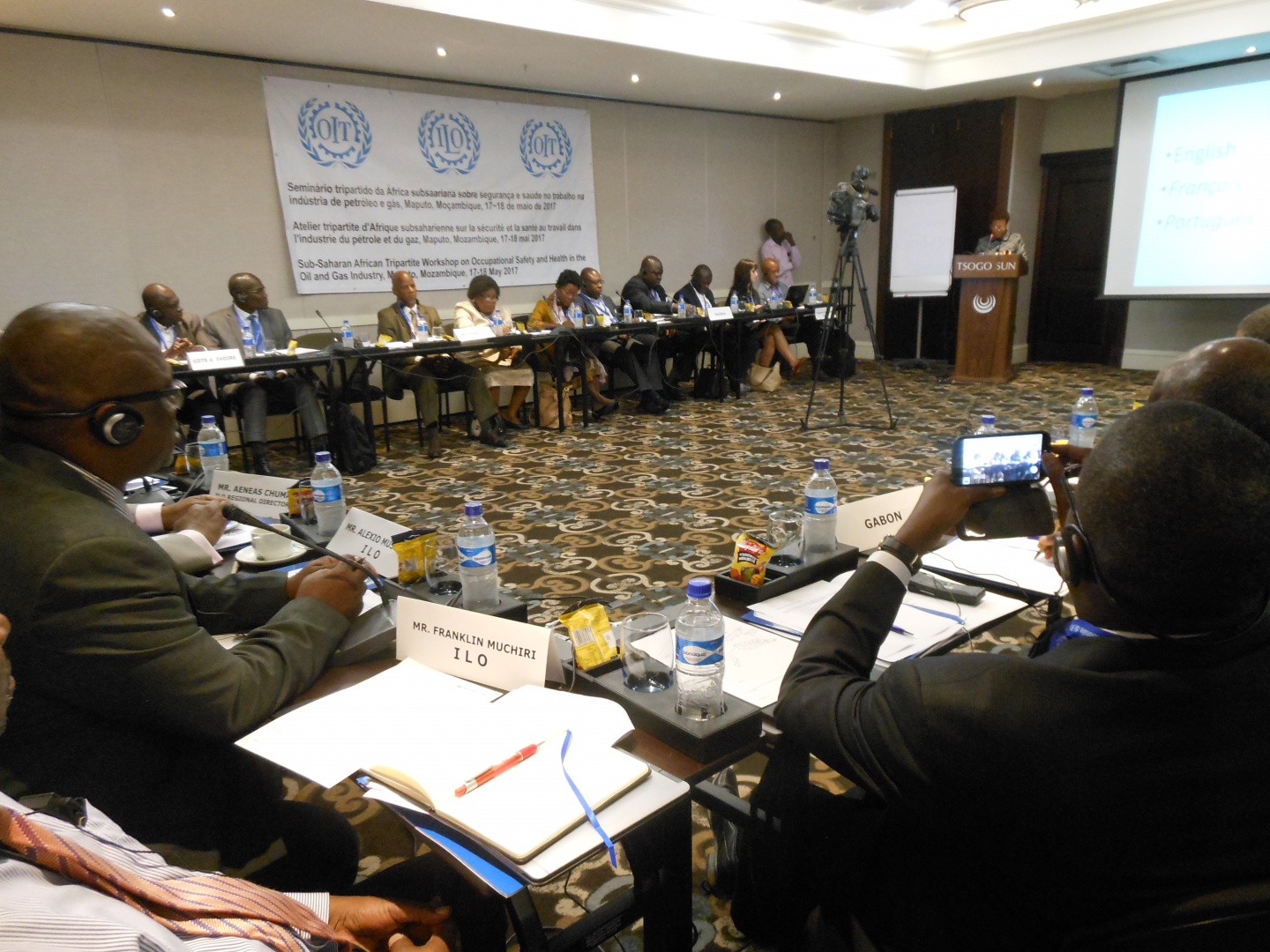25 May, 2017Representatives of governments, workers and employers gathered in Maputo, Mozambique on 17 and 18 May to look at ways of improving occupational safety and health (OSH) in the oil and gas industry in Sub-Saharan Africa.
IndustriALL Global Union was invited as an observer to the workshop, which was organized by the International Labour Organization and included tripartite delegations from Angola, Cameroon, Cote D’Ivoire, Gabon, Kenya, Mozambique and Nigeria.
Participants acknowledged that while oil and gas are essential resources, they are also a major contributor to environmental problems, inequality and conflict.
Workers in the industry face numerous hazards, and consequently fatalities, injuries and occupational diseases are high, according to the ILO.
Some of the dangers include:
- Physical, chemical, biological and ergonomic hazards related to noise, vibrations and exposure to heat stress
- Working in unsafe areas and conflict zones
- Accidents on route to and from rig platforms onshore or offshore
- Unfavorable climatic factors and humidity
- Long working hours
Many workers do not have proper protective equipment and other equipment to perform their duties in a safe working environment. One of the biggest challenges in the industry is precarious work, which often puts workers in insecure jobs without any recourse to justice or social security.
Participants remarked that due to poor governance, corruption, lack of equipment and specialized training, and inadequate human and financial resources, they needed independent labour inspectors and more information on occupational accidents and diseases.
Participants added that it is critical to empower national labour administrations and inspection systems to ensure full compliance with laws and regulation as well as access to appropriate and effective remedy and complaints mechanisms.
In trying to solve these problems, the workshop participants with input from IndustriALL, produced key recommendations for promoting health and safety in the industry, and action points for the ILO and its members. They include calls for:
- Governments to promote OSH in the industry through purchasing practices and clearly communicate what they expect from enterprises with respect to responsible business conduct.
- Workers, governments and employers to jointly promote Decent Work and OSH through health and safety committees, collective agreements, cross-border social dialogue and Global Framework Agreements.
Speaking at the workshop, IndustriALL energy director Diana Junquera Curiel, said:
All workers worldwide deserve to be safe in their workplaces and to return home every day unharmed. Training is crucial to prevent accidents from happening. The key to improving occupational safety and health in the oil and gas industry is to share responsibilities between governments, employers and workers.


